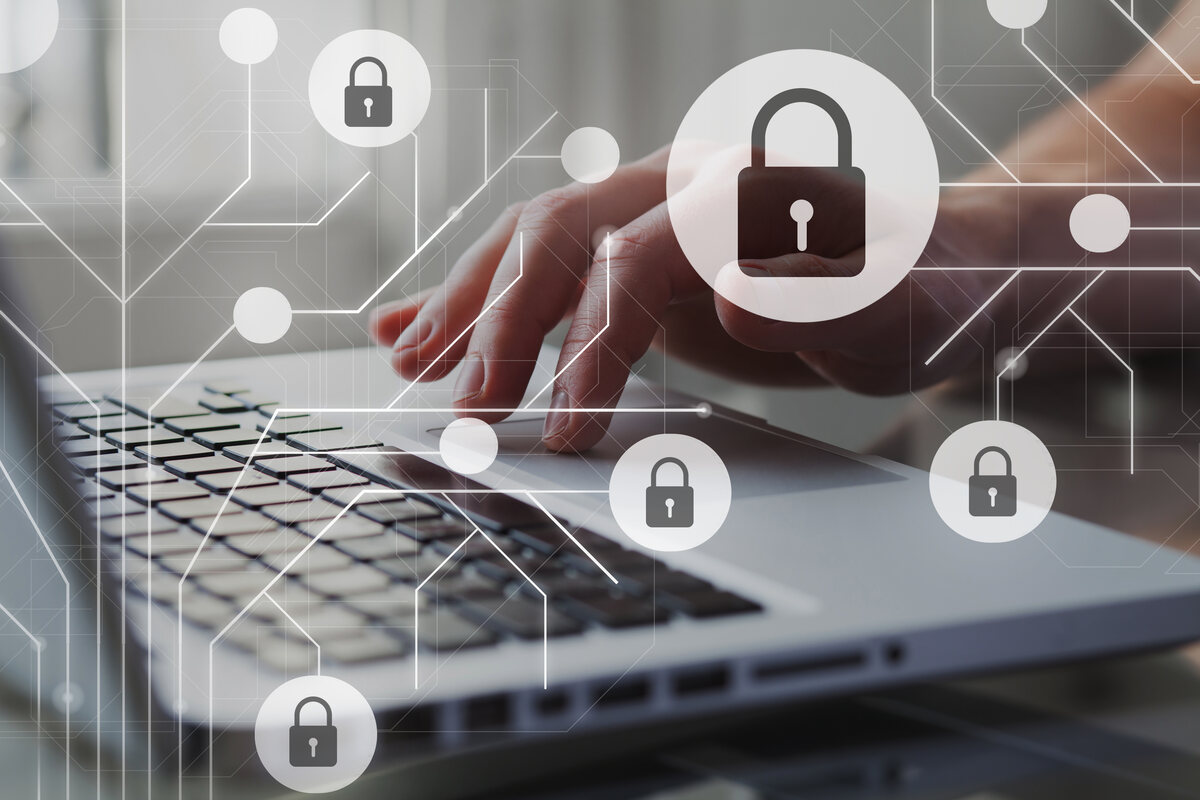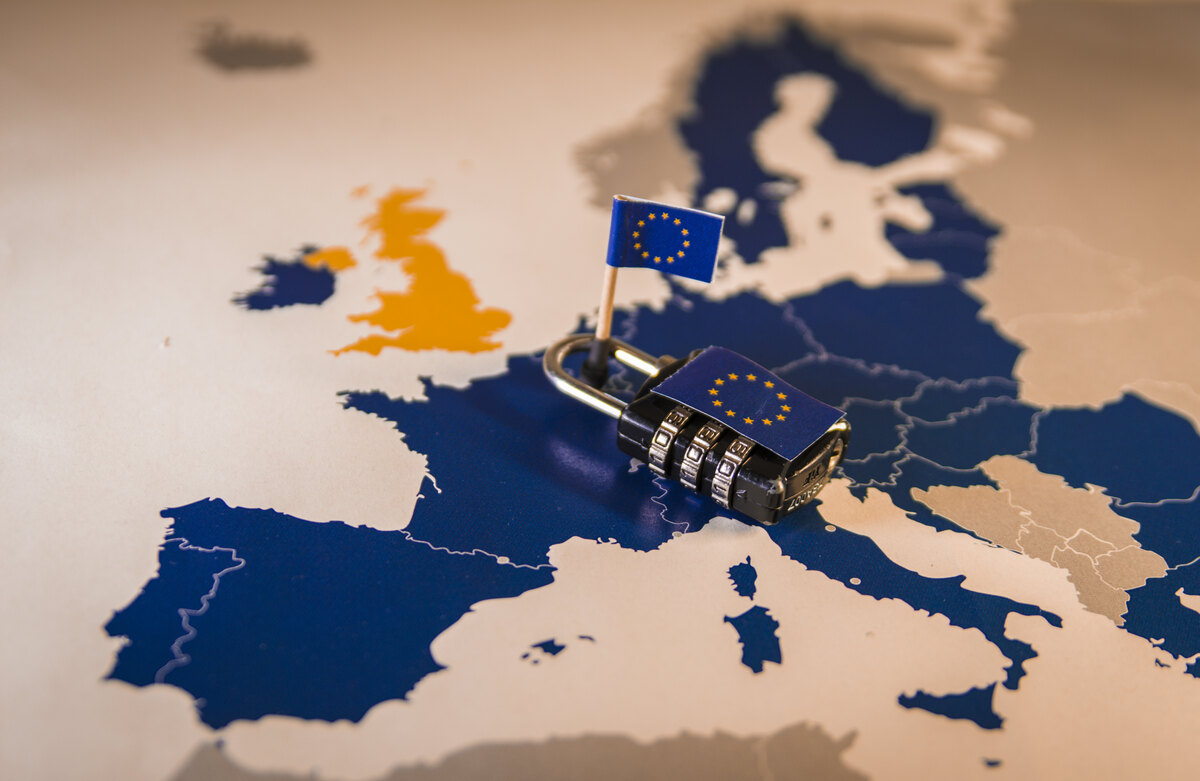
What are personal data? Confidentiality protection and effective tools in the field of professional liability insurance
In the full digital era, personal data has become an extremely valuable asset. Both companies and public institutions collect and process a huge amount of personal information every day. But what are personal data and why is it so important that they be as well protected as possible? Personal data is that information that can directly or indirectly identify a natural person. In this article, we will explore what personal data means, how it is defined, and provide examples of personal data to clarify these concepts.
Confidentiality and protection of personal data is not only a necessity, but also a legal obligation. In the European Union, the GDPR (General Data Protection Regulation) imposes strict standards regarding the processing of personal data and the confidentiality of personal data. We will also discuss the importance of laws in the protection of personal data.
Another essential aspect in the current context is the prevention of crimes related to non-respect of the confidentiality of personal data, crimes that can cause significant damages both from a personal and pecuniary point of view. Compliance with the law not only protects individuals, but also companies against sanctions and loss of reputation.
1. Personal data: definition, examples and categories

In the context of technological advancement and digitization, understanding the concept of personal data becomes essential for each individual and for each public or private organization. This information is fundamental in our daily interactions, both online and offline. So let’s explore what personal data means, let’s see some concrete examples and then discuss the different categories of such data.
1.1. What does personal data mean: defining the concept
Personal data is any information that refers to an identified or identifiable natural person. According to the legislation in force, including the General Data Protection Regulation (GDPR), an identifiable natural person is one who can be identified, directly or indirectly, especially by reference to an identification element.
The definition of personal data includes a wide range of information, from the most obvious, such as name and address, to less obvious data, such as IP addresses or cookies on websites. It is important to remember that what personal data means according to the relevant legislation may vary depending on the context and the way in which the information can be combined to identify a person.
1.2. Examples of personal data in everyday life
To better understand the concept, it is useful to explore some examples of personal data:
- Identifying information: name, address, telephone number, e-mail address;
- Biometric data: fingerprints, facial scans, DNA samples;
- Financial information: bank account numbers, transaction history, credit score;
- Medical data: medical history, diagnoses, medical prescriptions;
- Professional information: CVs, job history, performance evaluations;
- Location data: GPS coordinates, IP addresses;
- Personal preferences: online search history, buying habits.
These just a few examples of personal data fully illustrate the diversity of information that can be considered personal and that requires adequate protection.
1.3. Categories of personal data: examples from common to sensitive
The categories of personal data can be divided into two large groups: ordinary data and sensitive data. Understanding these categories is essential for the correct and legal management of personal information.
Here are the usual personal data:
- Contact information;
- Demographic data;
- Professional information;
- Online identification data.
Sensitive personal data can be:
- Racial or ethnic origin;
- Political opinions;
- Religious or philosophical beliefs;
- Belonging to trade unions;
- Genetic and biometric data;
- Health data;
- Data regarding sexual life or sexual orientation.
Data considered sensitive according to the GDPR requires increased protection due to their intimate nature and the high potential to cause harm in case of improper use. The GDPR regulation imposes strict security measures and specific conditions for the processing of these types of personal data.
In conclusion, understanding personal data, their examples and categories is essential in the current context. Regardless of whether you are an individual who protects his own information or an entrepreneur or a decision-maker in a company that manages customer data, knowing these aspects helps you to effectively approach the complex field of data protection. For organizations, in particular, this highlights the importance of implementing robust security measures and taking into account a professional liability insurance adequate to protect against the risks associated with the management of personal data.
2. Processing of personal data and related legislation

The legislation regarding the protection of personal data is already a fundamental pillar of modern society. These laws and regulations are designed to protect the rights and freedoms of individuals, while ensuring, at the same time, a clear framework of rights and obligations for organizations that process personal data. Next, we will explore the legal framework, processing principles and the importance of personal data confidentiality.
2.1. Personal data and the law or legal framework regarding data protection
The legal framework for the protection of personal data is complex and constantly evolving. In Romania and in the European Union, there are two main sources of legislation in this field:
- Personal data protection laws in Romania
In Romania, the main law that regulates this field is Law no. 190/2018 on measures to implement Regulation (EU) 2016/679. This law transposes, completes and details the GDPR provisions in the Romanian national context, establishing specific rules for certain sectors and particular situations.
- GDPR personal data protection in European legislation
The General Data Protection Regulation (GDPR) is the cornerstone of European legislation in the field of data protection. Entered into force in May 2018, the GDPR establishes a unified set of rules for all EU member states, including:
- Fundamental principles for data processing;
- The rights of data subjects;
- Obligations of operators and powers of attorney;
- Security measures and notification of security breaches;
- Sanctions for non-compliance with the regulation.
2.2. Personal data processing: legal principles and practices in the use of personal data
Personal data processing refers to any operation performed on personal data, from collection and storage to use and deletion. The GDPR establishes six fundamental principles for legal data processing:
- Legality, equity and transparency:
- Limitations related to purpose;
- Data minimization;
- Accuracy;
- Storage limitation;
- Integrity and confidentiality.
The use of personal data must be carried out in accordance with these principles. Organizations must have a legal basis for processing, such as the consent of the data subject, the execution of a contract, a legal obligation or a legitimate interest. It is crucial that the use is transparent and respects the rights of the data subjects, including the right of access, rectification and deletion of data.
2.3. Confidentiality of personal data: security measures and best practices
Ensuring the confidentiality of personal data is a critical responsibility for any organization that processes such information. This implies the implementation of appropriate technical and organizational measures to prevent unauthorized access, loss or destruction of data.
Some best practices that should be implemented across organizations include:
- Sensitive data encryption;
- Access control implementation;
- Regular staff training;
- Performing security audits;
- Development and testing of incident response plans.
Personal data and related crimes
Violation of data protection rules can have serious consequences, including substantial financial penalties and criminal liability in serious cases. The GDPR provides for fines of up to 20 million euros or 4% of the global annual turnover of organizations for serious violations.
Crimes related to personal data may include:
- Unauthorized access to data;
- Illegal data processing;
- Unauthorized transfer of data to third parties;
- Non-respect of the rights of the persons concerned.
Thus, understanding and respecting the legal framework regarding the protection of personal data are essential for any organization in the digital age. The implementation of solid data protection practices not only ensures legal compliance, but also builds the trust of clients and business partners. For companies that operate in the IT field or manage large volumes of personal data, choosing an IT professional liability insurance can provide additional protection against the risks associated with potential breaches of data security or errors in their management.
3. Personal data protection, GDPR, and professional insurance: useful information

Currently, the protection of personal data is a critical priority for organizations of all sizes. As cyber threats evolve and regulations become more stringent, companies must adopt a proactive attitude in managing the risks associated with personal data. In the last part of this article, we will explore the importance of cyber security and the important role that professional insurance plays in protecting businesses against risks related to personal data.
The importance of cyber security in the protection of personal data
Cyber security is the first line of defense in the protection of personal data. In the current context, where cyber attacks are becoming more and more sophisticated, the implementation of robust security measures is essential for:
- Preventing unauthorized access to sensitive data;
- Quick detection of potential security breaches;
- Ensuring data integrity and availability;
- Compliance with legal and compliance requirements.
Companies must invest in:
- Advanced firewall and antivirus systems;
- Data encryption in transit and at rest;
- Employee awareness and training programs;
- Incident response and disaster recovery plans.
Professional liability insurance for business protection
A professional liability insurance plays a crucial role in a company’s risk management strategy, especially when it comes to protection personal data. This insurance provides a financial safety net in case a company faces claims related to errors, omissions or negligence in the provision of professional services.
Key benefits of professional indemnity insurance include:
- Covering legal costs associated with defending against complaints;
- Compensations for damages awarded to affected customers;
- Protection against financial losses resulting from professional errors;
- Maintaining the company’s reputation in the face of incidents.
For companies that manage personal data, such insurance can cover scenarios such as:
- Accidental violations of customer data confidentiality;
- Errors in the implementation of data security measures;
- Complaints related to inadequate advice on GDPR compliance.
IT professional liability insurance: a necessity in the digital age
In the field of information technology, where the management of personal data is an integral part of many services, an IT professional liability insurance becomes indispensable. This specialized form of insurance is designed to address the specific risks faced by IT professionals and companies.
The benefits of IT professional liability insurance for companies that manage personal data:
- Coverage for cyber security incidents;
- Protection in case of loss or corruption of customer data;
- Assistance in crisis management and communication in case of data breach;
- Covering the costs associated with notifying the affected persons and monitoring the credits.
The role of IT professional liability insurance in mitigating the risks associated with data security breaches can be noted on several levels. Thus, these types of insurance:
- offers financial support for the investigation and remediation of security breaches;
- covers the potential fines and penalties imposed by the authorities;
- helps restore compromised systems and data;
- offers access to cyber security and crisis management experts.
In conclusion, in the current landscape of cyber risks and strict data protection regulations, the combination of robust security measures and adequate professional liability insurance becomes essential. For companies that operate in the IT field or manage significant volumes of sensitive personal data in terms of GDPR, a specialized IT professional liability insurance offers not only financial protection, but also the peace of mind needed to innovate and develop in the digital age .
By adopting a holistic approach that combines cyber security, regulatory compliance and professional insurance, companies can build a solid framework for personal data protection, thus strengthening their market position and customer trust.

